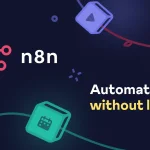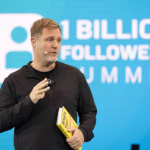Alex Hormozi has built a reputation as one of the most disciplined and practical minds in modern entrepreneurship. The founder of Acquisition.com, he scaled multiple companies past $100 million in combined revenue and became known for breaking down business growth into clear, mathematical systems that anyone can apply. His book $100M Offers became a bestseller by teaching founders how to design offers so good customers feel almost compelled to buy, and his follow-up $100M Leads turned into a guide for scaling with precision rather than luck.
Recently, Hormozi sat down with Amjad Masad, the founder of Replit, for a discussion about building durable businesses in the new AI era. Their conversation ranged from marketing psychology and mental stability to automation, AI agents, and what it means to create “unkillable” companies when technology moves faster than most people can adapt. Having watched the full discussion, these are the key takeaways that stood out most strongly.
The Philosophy Behind Calm Growth
The most useful business advice rarely sounds revolutionary at first Alex Hormozi’s opening line captures that truth perfectly. You might try five ideas today, but the one that could triple your business might only take five seconds to execute. His approach to entrepreneurship is built around that kind of clarity, a mix of relentless practicality and deep understanding of human behavior that feels perfectly suited to the age of AI where progress belongs to those who can adapt quickly and stay grounded while doing it.
Hormozi’s foundation begins with mindset, not metrics. He believes success starts with calm execution and a worldview he calls “cosmic irrelevance.” It is the idea that in a few generations, nobody will remember what you built, how much money you made, or how impressive your titles once sounded. The point is not to dismiss ambition but to strip away the anxiety that slows decision-making and drains focus. By removing the ego from the equation, founders can concentrate on execution without emotional turbulence.
He defines emotional stability as a trainable skill with three elements, toughness, fortitude, and resilience. Toughness is the length of your fuse before your behavior starts to break down under pressure. Fortitude is how sharp that breakdown becomes once the fuse burns out. Resilience is the speed at which you return to baseline. When you measure those traits honestly, you can build mental habits that let you stay rational through market shocks, hiring fires, or revenue drops.
The Model That Funds Itself
That inner discipline powers his most famous model for growth, the concept of client financed acquisition. The formula is simple but transformative. One customer must pay for their own acquisition, the cost of serving them, and the acquisition of the next customer. If that cycle completes within thirty days, you have a business that funds its own expansion without debt or outside capital. Hormozi built gyms that reached capacity before opening their doors and software companies that hit multi-million monthly revenue inside six months using that approach. It is not about working harder or chasing virality; it is about structuring cash flow so that momentum feeds itself.
A big part of that equation lies in the offer itself. Many founders default to low-ticket front ends that take months to pay back, assuming that smaller commitments mean lower friction. Hormozi flips that completely. He argues that the moment a customer is most motivated is the best time to ask for meaningful commitment. Offers should pull cash forward, not delay it and he points to examples like a float tank business that replaced cheap $99 memberships with a six-week stress program priced at $600. The guarantee was based on behavior rather than outcome and if customers attended regularly and still saw no improvement, they could get a refund. The result was immediate profitability, better engagement, and lower churn. That same principle works for dentists offering Invisalign plans or software founders using paid onboarding that doubles as a rebate when customers activate fully.
Retention completes the cycle. Hormozi discovered that lifetime value can actually increase when businesses proactively downsell. Instead of waiting for customers to cancel, identify those who underuse premium features and offer a smaller plan that matches what they really need. It seems counterintuitive, but his data showed that this group had the second highest lifetime value of any cohort because proactive honesty builds trust. Customers who feel understood rarely leave and often recommend the brand to others. It is a strategy that replaces desperation with loyalty and transforms short-term sacrifice into long-term profit.

Building Moats In The Age Of AI
Attracting customers efficiently still matters, and here Hormozi’s perspective is equally pragmatic. He believes that acquisition costs are not fixed by the platform but by the precision of the creative and the clarity of the offer. Search campaigns win through strong structure and copy, while social campaigns depend on constant creative testing and congruence between hook, headline, and product. He also rejects the modern obsession with frictionless design. Zero friction might seem ideal, but total ease creates apathy. The right amount of friction makes customers feel invested and improves conversion later in the funnel. The challenge for founders is to find that sweet spot between accessibility and commitment.
The conversation naturally extends into the new world of AI, which Hormozi views as a shift from information systems to action systems. Early tools existed to summarize, explain, or assist, but the next wave actually performs work. Sales development agents can now handle outreach autonomously. Coding agents can build, test, and refactor entire applications while learning from feedback. Quality control agents validate entire systems without rest. This evolution gives small teams enterprise-level leverage. Hormozi sees AI not as a threat to entrepreneurs but as a multiplier for those who know what to teach it.
That insight leads to his real definition of a modern moat. The advantage is not access to the best AI model but ownership of the best data. A founder with proprietary domain knowledge that cannot be scraped from the internet holds a defensible position. A legal expert who encodes decades of niche case law, a marketer who structures proven conversion data across dozens of industries, or an operator who documents every consultation into an internal knowledge base, all create something AI can use but competitors cannot replicate. When AI agents are trained within those private ecosystems, they produce results far beyond the reach of public models.
From Offers To Opportunities
One practical example is the idea of a “funnel scanner,” which Hormozi discussed during a conversation about marketing automation. Imagine a bot that crawls your ad library, screenshots landing pages, and highlights weak spots in your funnel. It could check congruence between hooks and headlines, measure load speed, flag misplaced calls to action, and identify where the offer breaks psychologically. Tools like that are not subscription businesses, they are powerful lead magnets. Give them away, collect data, and use that insight to sell recurring services like traffic optimization or creative development. As AI costs drop and accuracy improves, data-rich tools like these will replace ebooks and webinars as the new lead generation standard.
The playbook that emerges from Hormozi’s philosophy is clear. Build a worldview that keeps you calm, a money model that pays back inside thirty days, and offers that monetize customer motivation rather than hesitation. Downsell proactively and track goodwill as a measurable asset. Test creative constantly and balance friction for maximum commitment. Capture your domain knowledge and train AI systems on it until they can act with the same judgment you would use yourself. Then give away one genuinely valuable tool that collects data and drives everything else.
Hormozi’s message is that building an unkillable business in the AI era is not about chasing trends or hype. It is about combining calm thinking, sound math, and a deep respect for fundamentals. Success still belongs to those who can execute with discipline, communicate clearly, and structure their economics intelligently. Technology changes the tools, but the principles remain the same. Five seconds of the right action can change everything when the foundation beneath it is built to last.
If you want to watch the full interview (it’s well worth it), you can do so here.






